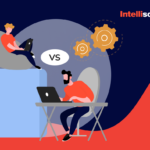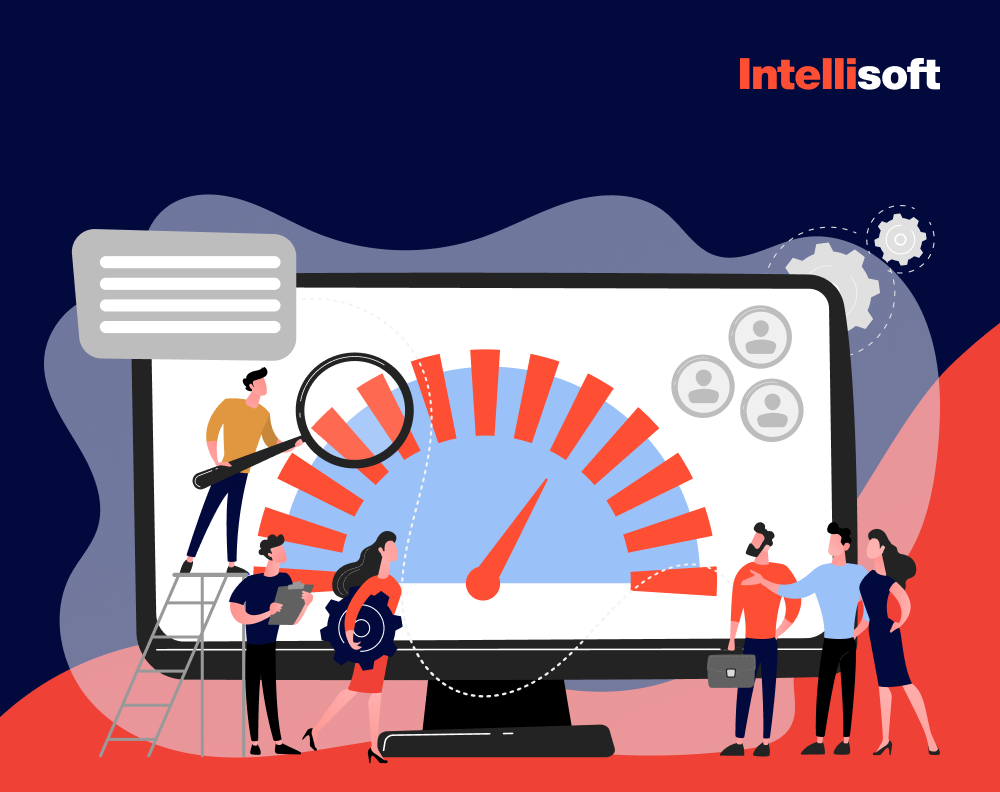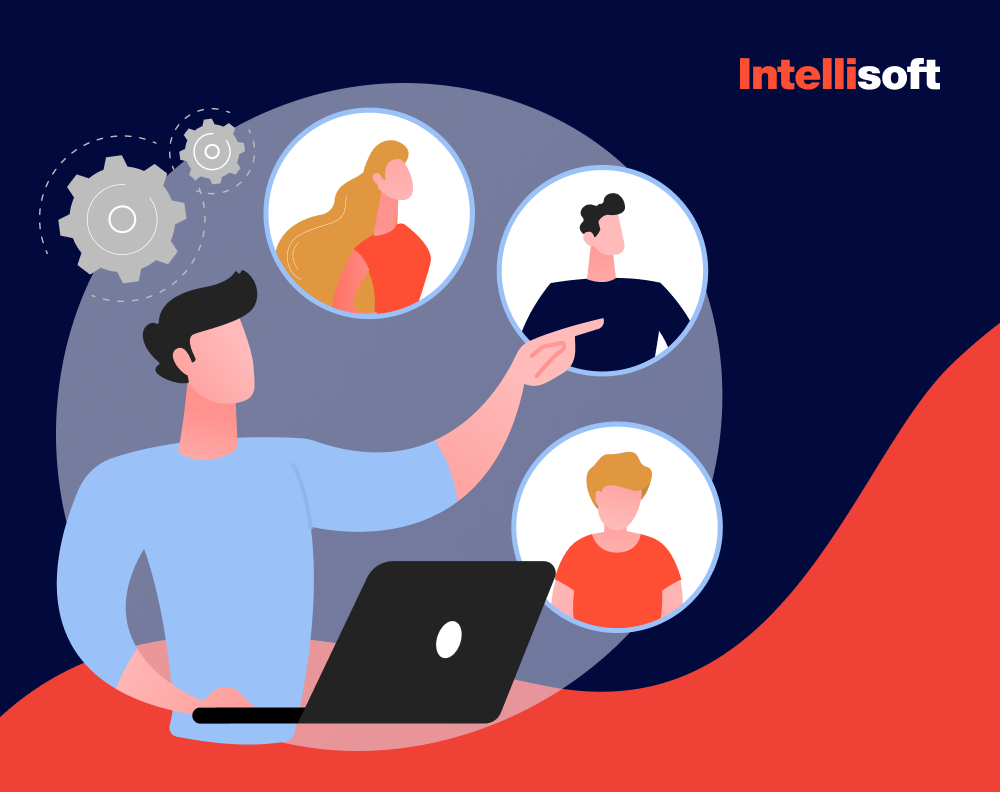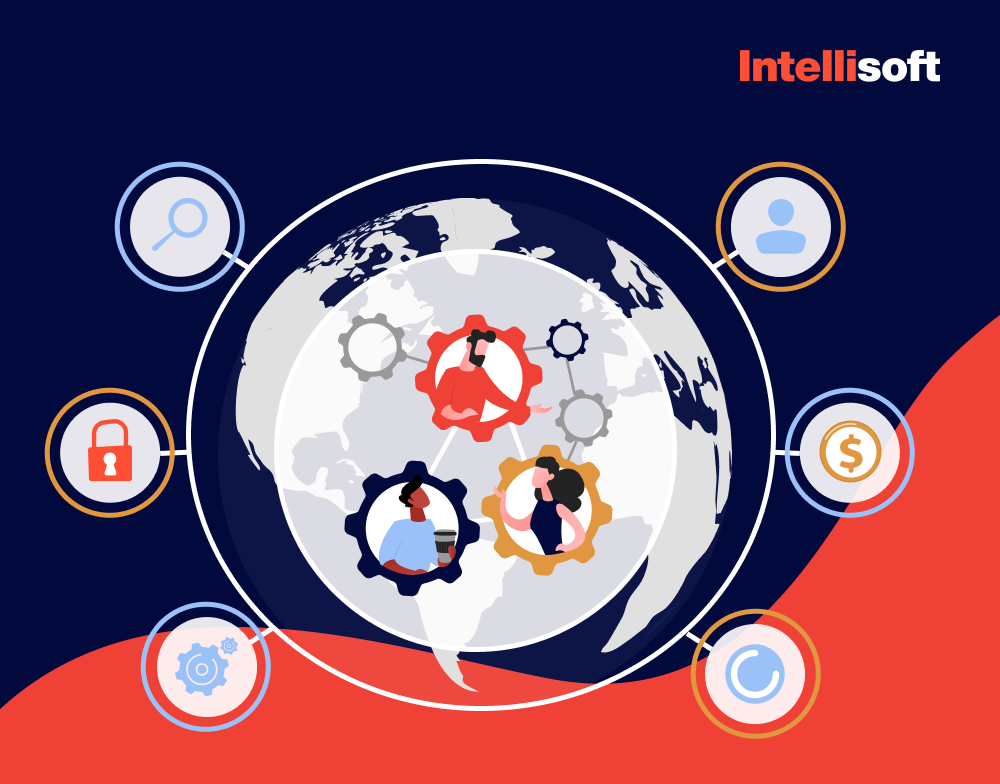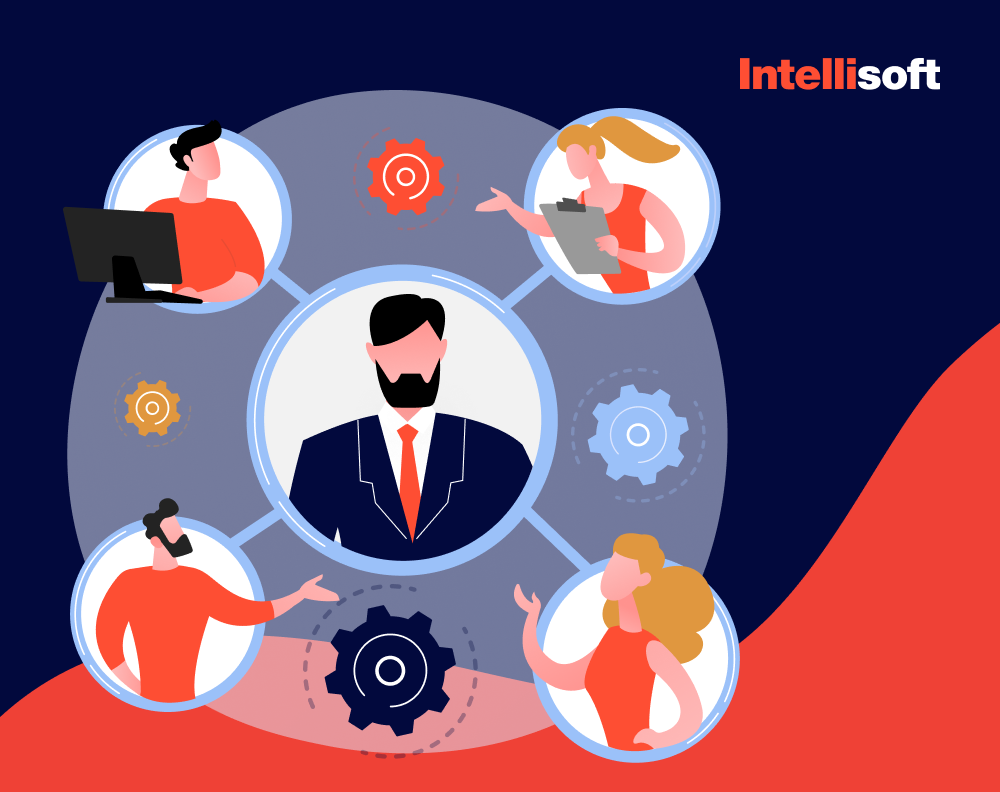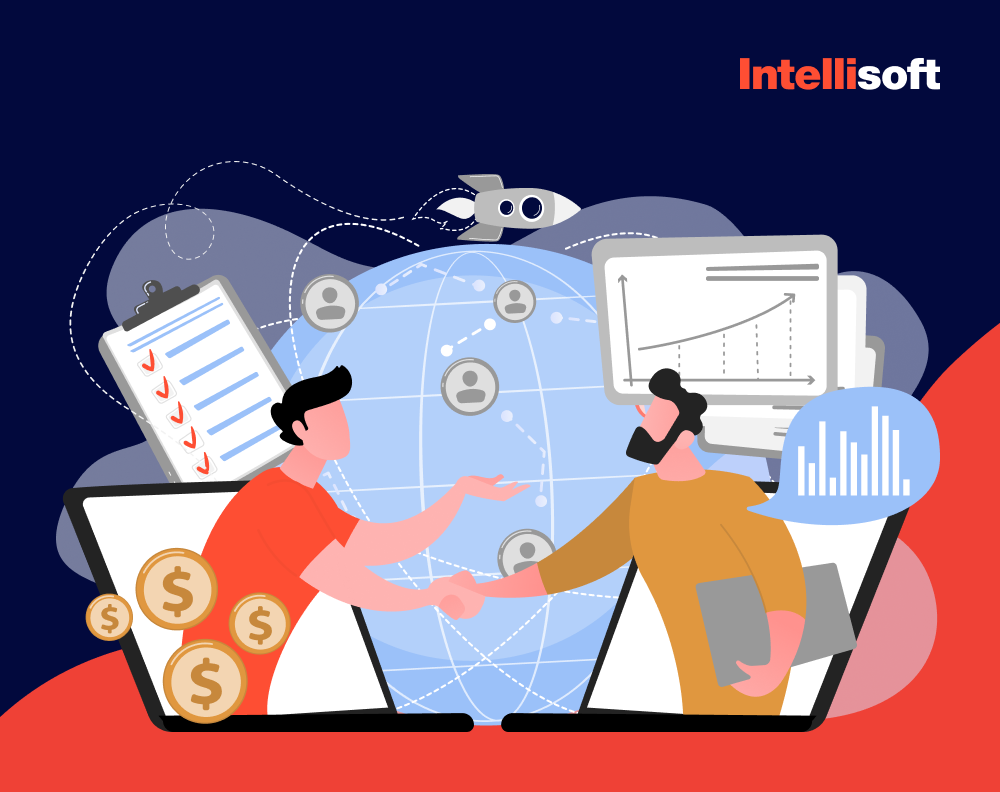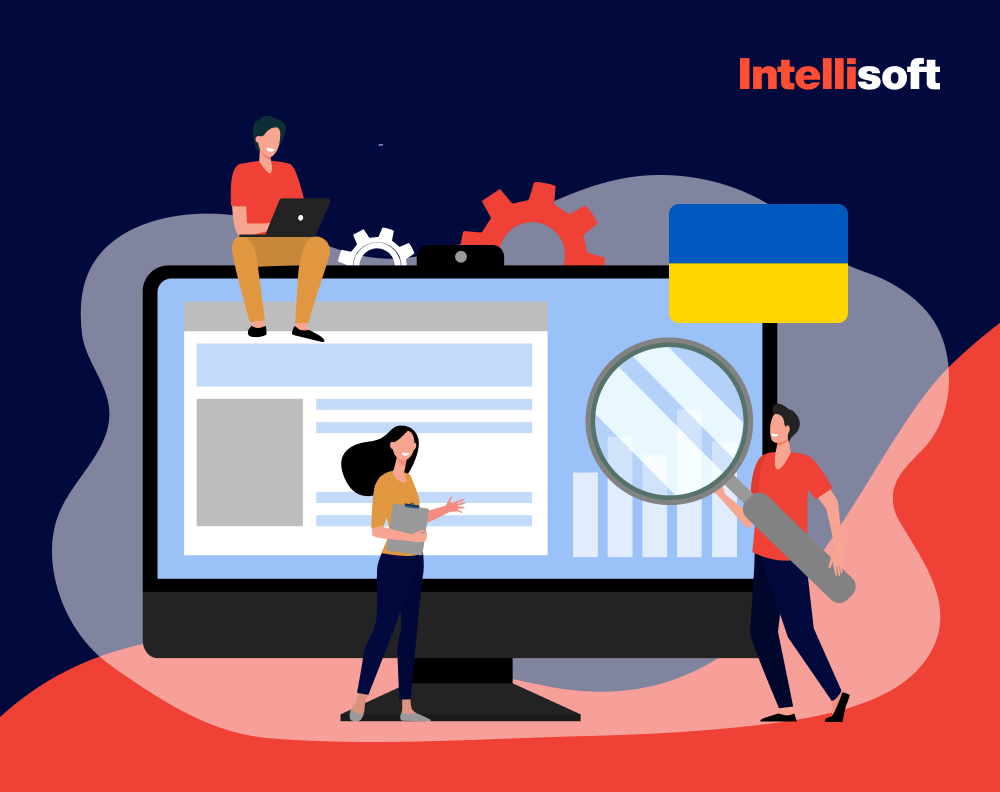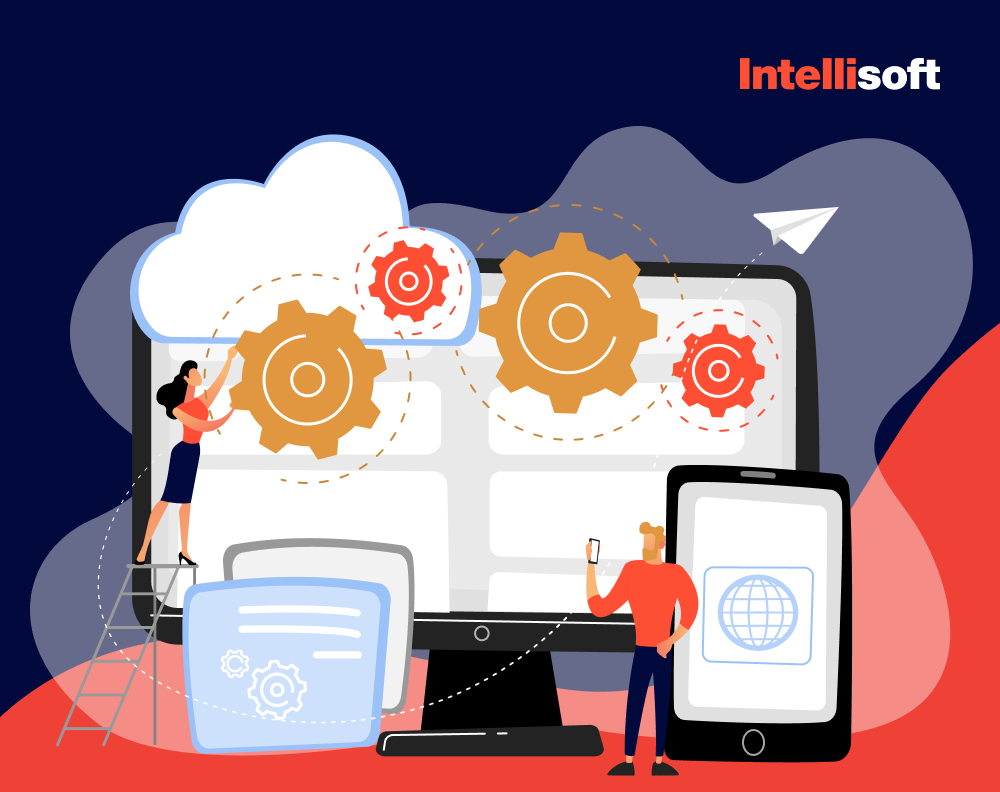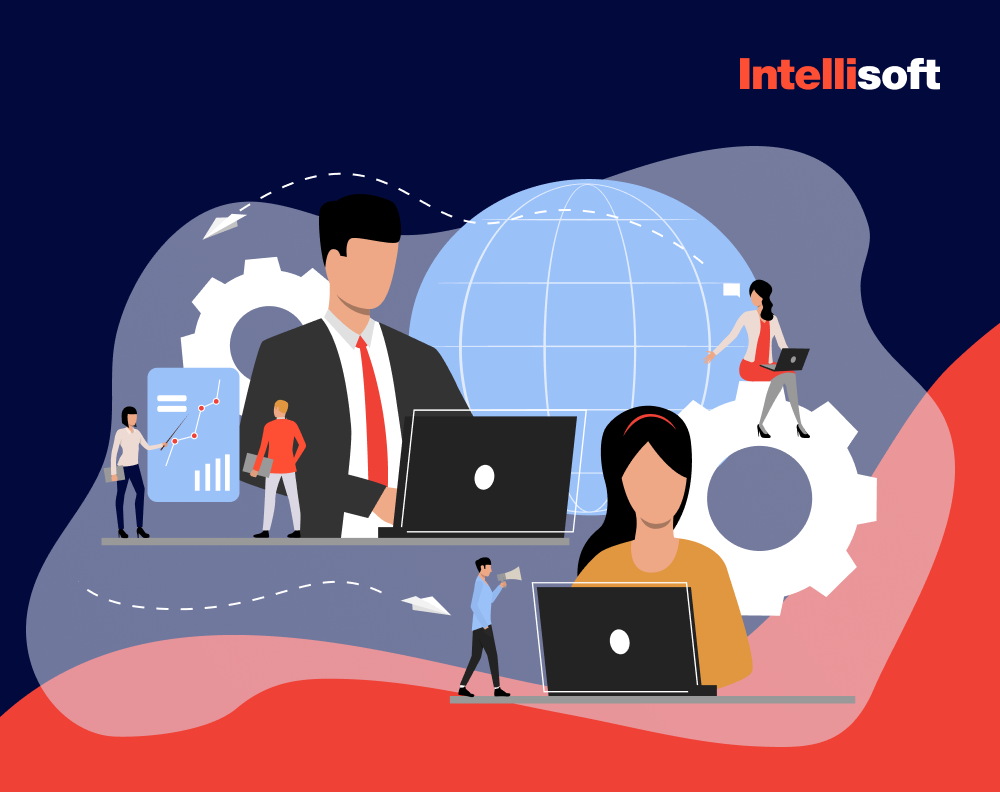Mobile apps are more popular now than ever, offering a tremendous business opportunity. To make the most of this trend, outsourced app development has become an essential strategy.
The mobile app market and the broader field of low-code application platforms (LCAPs) continue to grow. Gartner forecasts that by 2024, this market will exceed $12 billion globally. Moreover, mobile apps are becoming even more integral to daily life—2023 is set to be the year when app-based digital wallets are used for over half of all payments for the first time.
So, what does this mean for you? In this blog, we’ll delve into the world of outsourced mobile app development. We’ll explain why outsourcing is a smart move, how to approach it, and what to expect in terms of costs.
Selecting the right software development partner can be daunting, especially with so many specialized companies out there. That’s why we’ve put together this guide to help you navigate the process and find the perfect partner for your next project.
Table of Contents
What Is Mobile App Development?
The number of app downloads is growing every year. According to Statista, this figure was $192 billion in 2018 and $204 billion in 2019, increasing to $218 billion in 2020. Experts predict that mobile app revenue will reach $613+ billion by 2025. That’s why companies strive to create and bring their applications to the market. To do this, they need to outsource development with the help of field experts.
Mobile developers are professionals who develop complex software applications for mobile devices from scratch. User interface (UI) and software functionality have improved a lot in recent years. With the introduction of gesture and voice technologies, professional mobile app development agencies have become more competitive.
Mobile devices do not only mean portable electronics such as smartphones and tablets. They can also be components of the Internet of Things (IoT) and research systems based on gadgets and scientific devices. Both ordinary users and businesses from various industries need such apps: trade, including e-commerce, medicine, finance, science, entertainment, and more.
When you decide to outsource development to experts, remember that such specialists are most often divided into two categories in the labor market, depending on the operating system (OS): iOS or Android. It also determines their knowledge and skills requirements since the tech stack is strikingly different. Outsource app development agencies offer specialists from both branches.
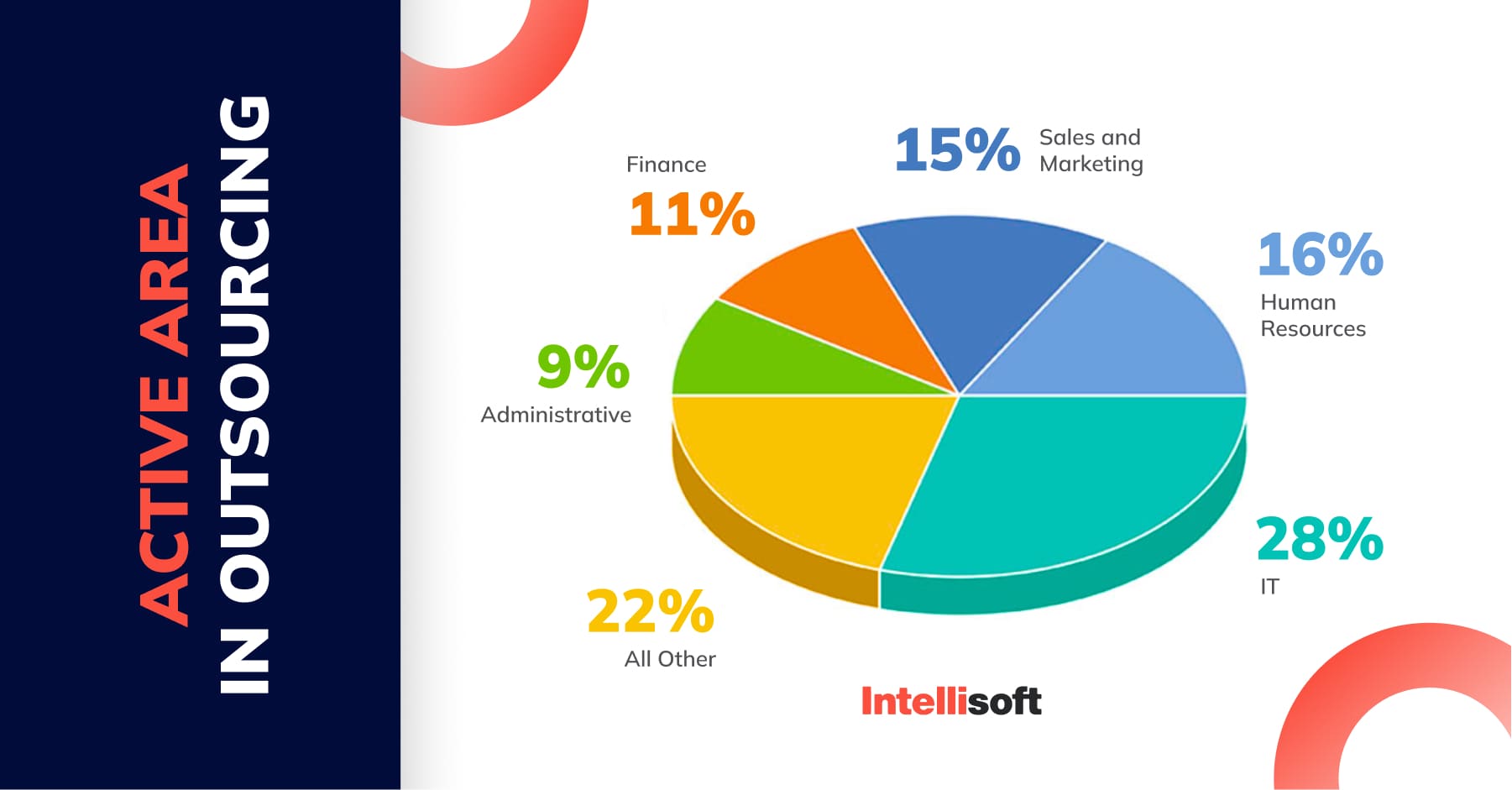
What does a developer have to deal with?
- iOS: Objective-C, Swift, C#, Apple Development Guidelines and competently apply them in practice.
- Android: Android SDK, Java, Kotlin, Scala (more rarely), Rest architectural style and SOAP protocol, API technologies, SQLite, etc.
Some competencies do not depend on the platform. For example, those are knowledge of structures and algorithms, network protocols, SQL language, or fundamental principles of mobile design and engineering. It also includes the experience of working with platforms that host apps for iOS and Android, i.e., App Store and Google Play.
Developers take responsibility for all project stages: building the architecture, configuring the interface, testing, publishing, and eliminating vulnerabilities. They should also upgrade app regularly. There is no division into front-end and back-end (unlike the web); the tasks include working with the interface and the internal logic. Specialists must follow trends and know how to introduce new technologies.
You might also like:
- Remote Development Team Structure in a Nutshell
- 20 Main Trends in the Development of Mobile Applications in 2022
- From Idea to Prototype: Build a Mobile App from Scratch
- What Is Low-Code Development, and Who Can Benefit from It?
- When Should You Change a Development Team?
5 Reasons to Outsource Mobile App Development Service
Innovative solutions
This advantage of mobile app development outsourcing is closely related to trends discussed previously. By delegating tasks to third parties, you are sure they will follow market trends and involve the latest technologies. Most often, these are resources that are expensive for house teams and freelance developers.
In addition, outsourcing companies usually have IT consultants who can recommend the best technologies to integrate into a thematic application. For example, it is helpful to implement blockchain and AI-based identification tools in mobile banking and use exciting VR elements in games.
Minimum costs
Savings are one of the main mobile outsourcing benefits of outsourcing mobile app development.
An experienced outsourcer will analyze your needs before concluding the contract and offer the best tariff plan that matches your goals and deadlines. The savings are achieved mostly through reducing expenses for maintaining full-time staff: salaries, sick leave, maternity, taxes, pension fund contributions, compensations, and overtime payments.
Moreover, you don’t need to look for new employees (and pay for this to HR), rent additional premises, or buy equipment and software licenses. The outsourcer assumes responsibility for managing operating costs. You just have to remotely monitor the work and timely pay for outsourced mobile app development services at the agreed rate.
Access to skills
Many companies outsource mobile development to get access to extended talent pools. Your staff may face problems bringing mobile development to the final due to a lack of skills, but outsourcing solves this problem. Several specialists usually work on an IT project: developers, testers, designers, business analysts, and marketers. You must admit that maintaining such a large staff is unprofitable for small and medium-sized businesses, so delegating tasks to nearshoring and offshoring is better.
An outsourcer gives you access to skills and knowledge from any direction and industry. People with relevant experience in your business niche work on the project, which means they need less time understanding and solving the tasks. In addition, you can change the outsourced mobile app development team composition at any time, for example, if you need a professional with skills in ML technologies.
Focus on the essentials
According to Deloitte, almost 60% of companies choose this cooperation model to focus on priority areas. It is beneficial to outsource non-core and time-consuming tasks or some part of the main work. In any case, it is a chance for you to direct all available resources (both labor and financial) to accomplish critical tasks.
You can devote time to marketing, promotion, expanding your customer base, or building partner networks. In such conditions, it is easier to introduce new technological and managerial operations and make decisions that determine the future of your business. It also makes sense to turn to an outsourcer if your infrastructure (service departments) growth rate is lower than that of your primary business.
Speed and flexibility
Development outsourcing increases your chances of gaining an advantageous position in the market ahead of your competitors. It is possible thanks to the accelerated work on the project: it is 2-3 times faster than the internal team will do. An outsourcer uses all the necessary resources to guarantee prompt completion of tasks and high quality.
The secret is in a competent approach to management and planning. The work is based on flexible methodologies such as Scrum, Kanban, etc. Work over your product will be divided into sprints, i.e., several iterations with a fixed duration (1-2 weeks). Breaking down a complex project into small tasks helps distribute tasks and adapt to changes appropriately. The result is a quick delivery of the product to market.
Why Choose Outsourcing Software Development: Summary
So, what are the key reasons for outsourcing software development? Is it the best option over in-house team hiring? The basic reasons for selecting outsourced teams include:
- It’s Practical
- Saves a Considerable Amount of Money
- Increases Operational Efficiency
- Provides Access to a Bigger Talent Pool
- Can Act as a Consulting Service
- Makes Your Project More Focused
- Mitigates Project Risks
- Equips You to Work Around the Clock
- Promotes Transparency in the Workplace
- Gives You More Time to Focus on Your Real ‘Mission’
Still, many companies are not successful with outsourcing their IT staff. The problem is not that it is impossible to find trusted partners. If you manage to avoid issues listed below, you will be happy with your outsourcing experience.
You didn’t agree on terms
You have to be on the same wave and conceptual plane with any contractor, especially with a service provider. After all, by taking over part of your functions, they become part of your company. Therefore, it is very important to make sure you understand each other, especially if you have never dealt with application outsourcing before.
Do not be shy or lazy to discuss all the details. Make sure that you properly understand each other and the terms of the contract. Ask all the questions, and, if you think it is necessary, change the terms of the contract to those suitable for your particular case.
Errors in budget planned
Some organizations choose outsourcing with one goal in mind – to save money. However, quality application development outsourcing services will not guarantee you direct tangible savings. You will see a certain cost reduction due to the fact that all processes are standardized and optimized on the provider’s side, and you will reduce the number of jobs with all their costs.
Still, do not count on a strong decrease in real costs – this is not the main task of outsourcing. First of all, outsourcing allows you to obtain highly qualified services, skilled professionals, access to the latest industry practices, and a guarantee of safety. Therefore, when outsourcing non-core activities to a provider, do not focus on savings, but rather on other benefits of app development outsourcing.
Failure to highlight areas of responsibility
A common mistake at the beginning of cooperation is the misunderstanding of areas and responsibilities. Some companies begin to constantly monitor the accomplishment of delegated tasks, while others, prefer just to assign tasks and leave it all to the outsourced team.
On the one hand, outsourcing is precisely the tool that allows you to delegate functions and not worry about non-core activities, as well as invest all efforts into business development. You have to take advantage of this instead of turning your cooperation with the provider into a search for their mistakes. Just sign a contract with a trusted, time-tested outsourcing company.
One way or another, the provider won’t be able to fulfill some of their obligations without involvement on your part.
Failed to work with a provider
This point is closely connected with the previous one. Well-established working contacts with the outsourcing company are a guarantee of a long-term cooperation based on mutual respect. Do not neglect this stage – spend time at the very beginning of your cooperation to organize the necessary processes on your side.
Chasing the fashion
If all of your contractors outsource developers to carry out some or other of their functions, there could be a feeling you also need to urgently transfer everything. Do not hurry – think about what kind of non-core tasks from your company will be more profitable to delegate to the provider, to what extent this should be done, and which outsourcing company will suit you. Consider the features and size of your business.
6 Steps to Hiring an Outsourcing App Development Team
Well, now you know what kind of mistakes you may face while selecting an outsourcing partner. It is the right time to have a look at how to hire an outsourcing app development team step-by-step.
Step 1. Start the project brief with protocols and requirements
It’s important to craft the project brief to make sure you have documentation of the outsourced app development process at each stage to share with your stakeholders when you present the final product. Typically, closer to the beginning, the brief will include protocols and requirements. The protocols may outline procedures for collecting feedback at each development stage, while the requirements usually list consumer needs and issues to solve.
Typically, these documents are digital records of the entire development process and contain comprehensive info to explain each stage. They usually serve as a guide for other developers who may work on the software in the future. The length of these documents can vary depending on the amount of data gathered during the fast application development.
Step 2. Find an app development team
We did our research and selected ten key criteria which, in our opinion, are the most important when choosing a web development company:
- Range of IT services provided by the company
The development of any project is a complex process that requires a comprehensive consideration. It includes not only writing quality code, but also preliminary business research, team building, quality assurance (QA) and control, risk assessment and mitigation at all stages of web development, as well as after-sales service. An outsourcing company that provides a full range of IT services will be able to help you implement your project idea in the best way, offer a non-trivial solution and create a product that can take its rightful place on the market.
2. Area of expertise and experience
Another vital criterion that will help you form an opinion about an outsourced IT company is its area of expertise and experience, e.g., the scope of its professional skills and development experience. As a rule, companies publish information about their certifications. Many companies have certificates confirming the level of high quality standards. The qualifications (experience and education) of the vendor’s team are also important. Look at what technologies the service provider possesses along with the projects it has already implemented, and evaluate its achievements in terms of quality and quantity.
3. Software quality and professional approach
Choose an outsourced team not only based on its knowledge of technology, but also on the ability of its members to use tools and frameworks that speed up the development process and increase efficiency and productivity. Find out what tools the company uses for prototyping, its development methodology, tracking systems, and software quality metrics used to build products. Discuss your expectations with them.
4. Promptness in answers
A high level of responsiveness in answering questions is appreciated in the IT business world. The IT specialist has to provide the requested information quickly and notify the client that their question is accepted for consideration. They will get the required information in time.
Find out how company managers and developers interact with each other, what communication tools they use, how quickly they answer questions and correct errors. Do they indicate possible ways to solve a problem fast?
5. Innovation
“Innovation is what distinguishes the leader from the follower,” Steve Jobs
Innovation is more likely to happen in smaller companies these days. Such companies are more flexible and adopt new technology faster. They don’t use expensive, outdated software and tend to use up-to-date collaboration tools, business apps, SaaS solutions, mobile platforms, and other advanced technologies and software development techniques. A successful IT company never stops working on new products or services and will continually invest in product development to keep customers interested and loyal.
Innovation is based on the professionalism of specialists in the first turn. Much depends on the personal qualities of the developers, as well as their abilities and desire to remain in the mainstream of web development.
6. Project methodology and process
A reputable IT company follows a structured and well-defined project management methodology, such as Scrum, Kanban, etc. to optimize the project development process and ensure effective cooperation between the client and the service provider.
For outsourced projects, it is critical to ensure quality monitoring and real-time coordination. Find out how you, as the customer, will be involved in the development process and how you can monitor your project. Ask the vendor to prepare a communication plan.
7. Commercial flexibility
Serious IT outsourcing companies take a flexible approach to project evaluation and implementation. As a rule, fixed prices are offered for documented projects with a clear action plan and deadlines. For projects with an undefined work plan, flexible prices are usually in place.
8. Contracting practices
Make sure that the vendor is competent enough to competently administer contracts.
As a rule, experienced IT companies publish reviews of implemented projects and detailed cases on their website. Take note of whether the company has signed contracts similar to yours, study the technologies and frameworks, which were used in a certain project, assess the company’s main partners, and thoroughly study the vendor’s recommendations once again.
9. Language & cultural compatibility
So, you want to get your project done according to your plan, at a reasonable cost and time. Language barriers and cultural differences can derail the effort.
Pay attention to your vendor’s language skills and cultural compatibility. To facilitate communication and interaction, choose an outsourcing provider with a cultural background and education similar to yours.
10. Location & time zone
It is desirable that the selected IT services provider is located in close proximity to your company. This will save you a lot of money and time.
Finally, make sure that your provider is in the right time zone and their business hours match yours. This will improve communication and resolve issues without delay.
Step 3. Check portfolio, study resumes, and communicate with previous clients
In addition to the overall company’s portfolio, you may need to have a look at impersonal resumes and a competency map. Impersonal resumes are the typical employee resumes, but without contact information. The competency map is a description of the specialist’s competencies so that you can select a developer with the required degree of expertise. If requested by the client, the company should provide several impersonal resumes of available staff members with the description of their competencies.
Ask for some cases as well. A trusted company like IntelliSoft has nothing to hide, and you can observe the full list of cases hassle-free. In other situations, the problem with cases can be that the projects carried out for other companies are under NDA, meaning the details cannot be disclosed. Therefore, the cases may be impersonal, with no indication of specific clients.
Step 4. Select service model
To hire outsourcing app developers, you need to choose between full process outsourcing, dedicated teams, or outstaff working models.
- Full process outsourcing. The outsourcing partner takes over the entire development process with full responsibility for the organization and management, the quality of the results and the risks involved, from business analysis to solution support.
If you don’t have any experience in development and there is no goal to accumulate tech competencies internally, this model may suit you.
- Dedicated team. The client has a team of IT specialists at its disposal. They are carefully selected to meet the requirements and specifics of the task on a long-term basis. The dedicated team can replace the entire development staff or work side-by-side with the in-house department, provided there is a clear delineation of responsibilities.
Management remains on the vendor’s side. The contact person can be not only the PM, but a team leader, for instance, depending on how technically prepared the client is.
- Outstaffing. Outstaffing is used for short-term staff hiring for specific jobs. This form of cooperation provides for the possibility of exploiting third-party experts from another company. With this type of employment, no legal relationship arises between the client and the hired experts. However, the duties of the outstaffed members include the obligatory performance of the list of tasks prescribed in the agreement.
Explaining this term in simple words, it should be noted that an outstaffing company will provide part of its personnel to another company for a certain period of time to perform a set list of works.
Step 5. Choose a payment model
For a dedicated team or a project-based working model, you can choose among several paying models.
- Fixed – when tasks have a fixed cost. You outsource the task, and the outsourcers estimate the price before they start the work. The advantage is that the cost cannot change. As a rule, if the estimations were done somehow wrong, this is their problem.
The downside of the fixed-approach is that the cost includes risks, so it is usually 10-30% higher than the hourly rate. Also, before the start of work, time is spent on evaluation: the task is divided into subtasks, the responsible specialists try to figure out how long it will take to implement, and what kind of expertise is needed. Only then managers can estimate the cost.
There is also no possibility to choose the level of the specialist as their qualifications are determined by the outsourcing company.
2. T&M (time and material) – payment for actual time spent. In this case, everything is transparent and clear for the client. The downside is that the outsourcing agents can only give an approximate estimate of the cost of the work. In fact, the task may take less or more time than expected at the start. Respectively, the cost varies up or down.
The advantage of T&M is that the cost of outsourcing is cheaper compared to the fixed model. Still, it could be that the manager is too lazy to draw up the terms and conditions for the developer. Instead, they try to explain the task verbally. As a result, the specialist’s time is spent on talking to the manager rather than on development.
3. Outstaff or per hour – a complete buyout of specialists. A programmer of a certain level (junior, middle, senior) from an outstaffing company starts to work as a full-time employee. If they fall ill or resign, the company is obliged to find a replacement, usually within a limited period of 1-5 days, in order to avoid downtime.
The disadvantage may be that if you hire a middle expert, and for some tasks you need a senior, you will have to hire an additional specialist. In addition, there may be no testing phase involved.
Once you are done, we hope that you’ll choose to work with us. It is as easy as ABC to get started with IntelliSoft. Here is your brief guide to outsourced app development to IntelliSoft:
- Get started!
Let us first discuss your project’s scope, goals, and requirements. Our team conducts interviews and in-depth studies to come up with the best solutions for your business. - Onboarding
Our experts take full control of the onboarding process. Thus, the client does not have to waste time on this process. We provide employees with the necessary mentoring. - Control
From constant everyday monitoring to regular outcome-oriented reports, IntelliSoft provides clients with different levels of engagement. - Scaling
Our goal is to make sure that you meet even the tightest deadlines with no compromise on quality. Our specialists can implement any ideas that may ever come to your mind, enriching your product with brand new features.
Ready to get started with our productive cooperation? Calculate your outsourcing team costs right away!
Industry Trends That App Developers Should Know
As technology advances, mobile apps will gain momentum in the digital sector. There is no doubt that the app industry will flourish in the coming years. A good app developer should always be aware of the upcoming trends happening in the industry. Therefore, if you are planning to hire engineers to create an application, you should know the mobile app development trends that will prevail in 2022-23.
5G
The “fifth-generation” communication networks are components of digitization and the digital economy. They greatly enhance the functionality of previous network generations. First and foremost, 5G speeds up data exchange with radio access technologies (RAT) and new radio frequency spectra (NR). Users get a wide communication channel for home or corporate purposes.
More than 551 million connections are expected to be completed in 2022. Data exchange will be 100 times faster than with 4G. As a result, mobile applications will become more functional and support complex IoT and VR/AR solutions. It is an excellent option for business-critical applications (e-Health, Tactile Internet) and software within the Smart Home systems (home appliances automation, climate control, content storage) and Smart City (e-education, healthcare, banking).
IoT
IoT is not a new trend: applications supporting IoT have already taken root in almost every business area. However, this technology will continue to evolve rapidly in the coming years. By 2027, the market promises to grow by 3 billion compared to 2019.
We noticed that enterprises started outsourcing apps in this area more often. Everyone wants to have round-the-clock access to connected infrastructure via a smartphone. One of the reasons for such popularity is the impact of the pandemic on the healthcare industry. Today, people want to monitor their health in a Smart Hospital in real-time.
AR and VR
As the Internet of Things, these technologies are also used by businesses. Tech companies like Samsung, Sony, and Facebook have already implemented them in their devices to improve UX and attract new customers. This trend is expected to cover many industries in the future.
Statista reports that the global AR and VR (and MR) market will grow to $300 billion by 2024. It is good news for developers. The immersive technology allows them to add visual layers to mobile devices, including with the help of ARKit (Apple) and ARCore (Google). The user experience in the education, shopping, marketing, travel, and medical industries is reaching a new level.
AI & ML
Such prominent players implement AI-based technologies as Google and Amazon. In 2027, the market is expected to increase to $267 billion. We can identify the three most promising areas for outsourcing development: natural language processing (NLP), chatbots, and biometric identification. They all can become nice additions to applications.
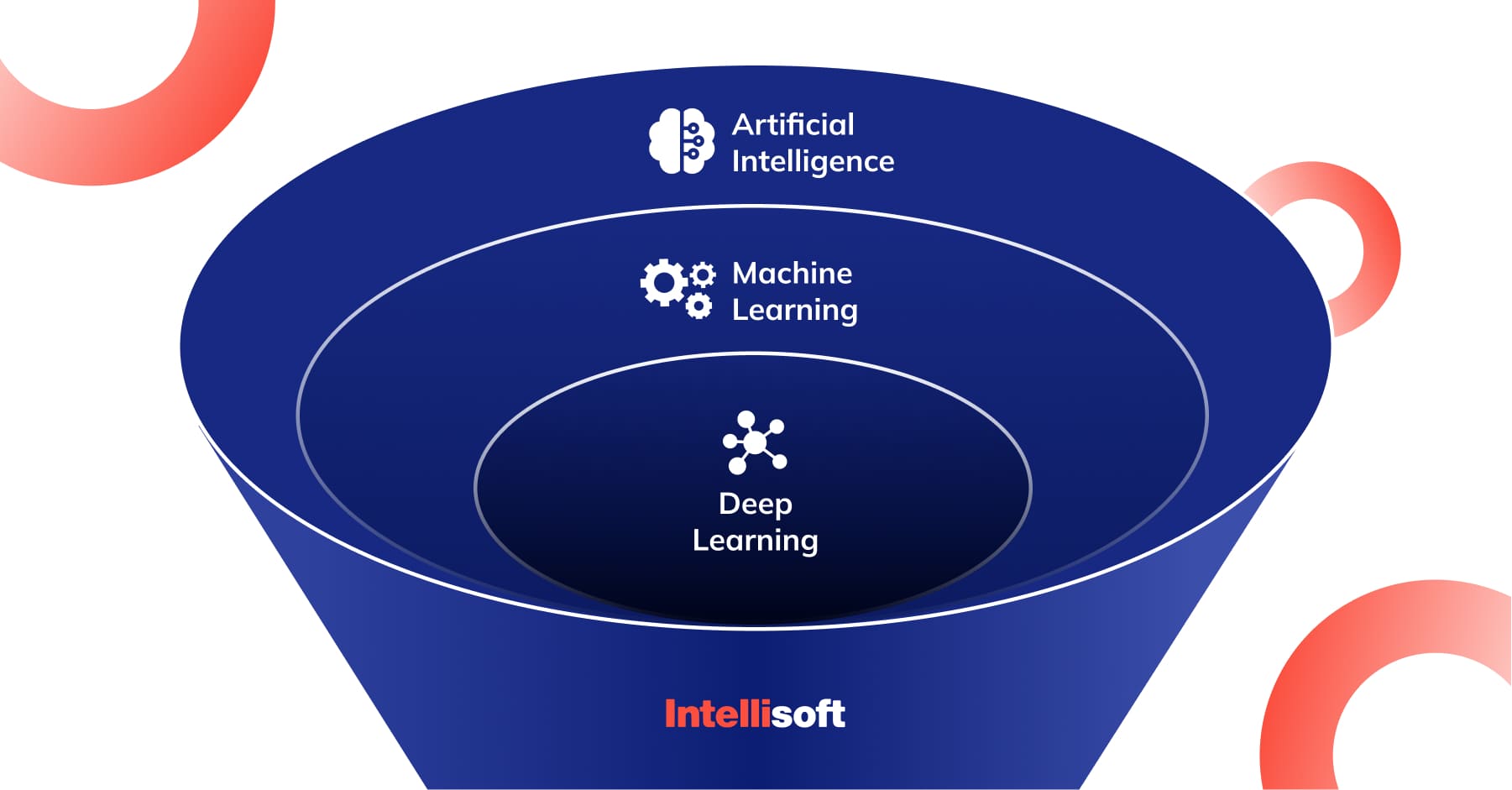
NLP is used for speech recognition, written and oral search, display of relevant online ads, auto-translation, customer sentiment analysis, and automated customer assistance. Сhatbotіs consist of NLP and internal chat systems (e.g., PUSH notifications). Biometrics help identify a person by fingerprints, face, iris, or voice. It is vital for mobile banking, healthcare, and e-commerce sectors.
Blockchain
This technology is designed to improve the security of applications. With decentralized databases and end-to-end encryption, the risk of system hacking and personal data leakage is reduced to zero. Blockchain is expected to be used in data storage, financial transfers, personal identification, online retail, copyright protection, and even health monitoring.
From a business perspective, this approach ensures the rational use of resources, minimizes the risk of information fraud, and opens up new ways to generate revenue. A deep understanding of dApps and cryptography is required from developers working in blockchain programming.
Mobile Wallets
Contactless payments have become widespread due to the pandemic. Also, their popularity is associated with the proliferation of NFC-enabled devices. The most popular wallets on the market are developed by Apple, Google, Amazon, and Samsung. More and more people appreciate the opportunity to provide financial transactions in one click.
Shortly, wallet integration will become a standard feature for every application. It will ensure efficient transactions and data storage security regarding bank cards, passports, driver’s licenses. Overall, the number of transactions via smartphones will grow by 74% in 2025 compared to 2020. Every second person will use a digital wallet.
iBeacon
Another technology that is by no means new: it was born in 2013. Now it is gaining popularity with renewed vigor. iBeacon is a solution from Apple designed to transmit Bluetooth signals to devices located within the range of Bluetooth beacons.
The mini beacon communicates with smartphones via Bluetooth Low Energy. When a person is nearby, it “wakes up” the application on their smartphone and distributes informational or advertising materials. Statista predicts that market capital will grow by 60% in 2026 compared to 2016.
Best Places to Look for Qualified Developers for Your Project
We would like to share handy info on where to find onshore, nearshore, or offshore app development specialists.
- B2B directories
Clutch is one of the best examples from this category. It is a Washington-based B2B review and evaluation online platform that allows clients to find advertising and IT staff. For instance, to learn more about IntelliSoft, you can check the company’s profile and customer feedback.
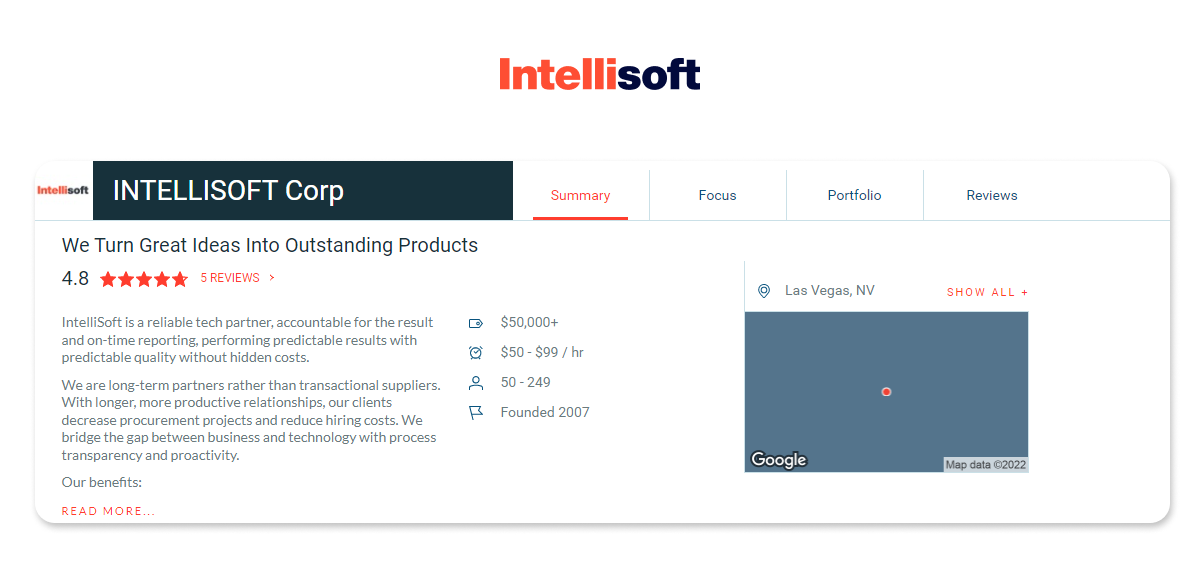
- Dev sites & blogs
GitHub is a platform where developers post their projects. It can be hard to figure out what is written in a profile right away, as well as manually analyze projects, looking for the right keywords. That’s why it’s helpful to learn about Candyjar. It will do the boring work for you by scanning the developer’s code, finding it in other social networks and collecting all the information in a separate file. StackOverFlow is a place for sharing experiences. To search for candidates, use SQL queries. The StackExchange Data Explorer can help with this. If you don’t feel like doing it at all, you can turn to query generators. The good news is that GitHub and StackOverFlow are excellent X-ray scans. You may consider other forums and communities.
- Professional social networks
LinkedIn was not designed for the IT market, but don’t give up on searching there, either. Set up a keyword search and use operators to narrow down the sample. Also note that it is better to work with profiles from the end or middle instead of the beginning. The most popular candidates – those at the beginning of your search – get the most messages, and that is why your message may simply go unread.
For LinkedIn, you can use the Custom Service Engine (CSE), a special Google service that simplifies searches.
- X-ray search
If you’re not yet familiar with this system, remember the main feature of X-ray: with any search engine, you can scan profiles and find developers who meet certain criteria. In general, it is about scanning the user base bypassing the website itself. Use all search engines: Google, Bing, but consider their peculiarities.
That is how to outsource app development and find qualified engineers.
5 Reasons Why You May Want to Outsource Mobile App Development Service
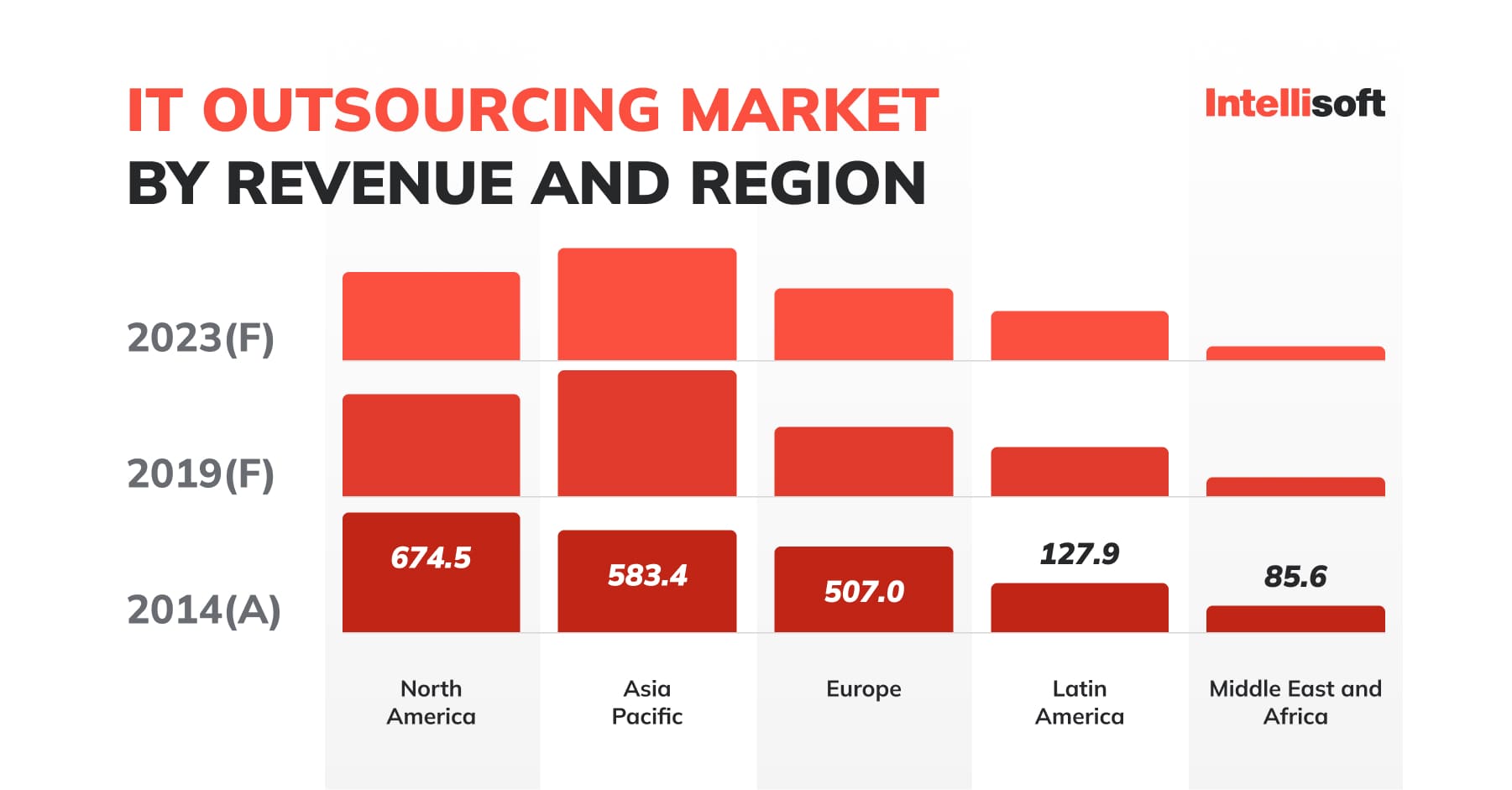
Innovative solutions
This advantage of outsourcing is closely related to trends discussed previously. By delegating tasks to third parties, you are sure they will follow market trends and involve the latest technologies. Most often, these are resources that are expensive for house teams and freelance developers.
In addition, outsourcing companies usually have IT consultants who can recommend the best technologies to integrate into a thematic application. For example, it is helpful to implement blockchain and AI-based identification tools in mobile banking and use exciting VR elements in games.
Minimum costs
Savings are one of the main mobile outsourcing benefits. An experienced outsourcer will analyze your needs before concluding the contract and offer the best tariff plan that matches your goals and deadlines. The savings are achieved mostly through reducing expenses for maintaining full-time staff: salaries, sick leave, maternity, taxes, pension fund contributions, compensations, and overtime payments.
Moreover, you don’t need to look for new employees (and pay for this to HR), rent additional premises, or buy equipment and software licenses. The outsourcer assumes responsibility for managing operating costs. You just have to remotely monitor the work and timely pay for mobile outsourced app development services at the agreed rate.
Access to skills
Many companies outsource mobile development to get access to extended talent pools. Your staff may face problems bringing mobile development to the final due to a lack of skills, but outsourcing solves this problem. Several specialists usually work on an IT project: developers, testers, designers, business analysts, and marketers. You must admit that maintaining such a large staff is unprofitable for small and medium-sized businesses, so delegating tasks to nearshoring and offshoring is better.
An outsourcer gives you access to skills and knowledge from any direction and industry. People with relevant experience in your business niche work on the project, which means they need less time understanding and solving the tasks. In addition, you can change the team composition at any time, for example, if you need a professional with skills in ML technologies.
Focus on the essentials
According to Deloitte, almost 60% of companies choose this cooperation model to focus on priority areas. It is beneficial to outsource non-core and time-consuming tasks or some part of the main work. In any case, it is a chance for you to direct all available resources (both labor and financial) to accomplish critical tasks.
You can devote time to marketing, promotion, expanding your customer base, or building partner networks. In such conditions, it is easier to introduce new technological and managerial operations and make decisions that determine the future of your business. It also makes sense to turn to an outsourcer if your infrastructure (service departments) growth rate is lower than that of your primary business.
Speed and flexibility
Development outsourcing increases your chances of gaining an advantageous position in the market ahead of your competitors. It is possible thanks to the accelerated work on the project: it is 2-3 times faster than the internal team will do. An outsourcer uses all the necessary resources to guarantee prompt completion of tasks and high quality.
The secret is in a competent approach to management and planning. The work is based on flexible methodologies such as Scrum, Kanban, etc. Work over your product will be divided into sprints, i.e., several iterations with a fixed duration (1-2 weeks). Breaking down a complex project into small tasks helps distribute tasks and adapt to changes appropriately. The result is a quick delivery of the product to market.
Conclusions
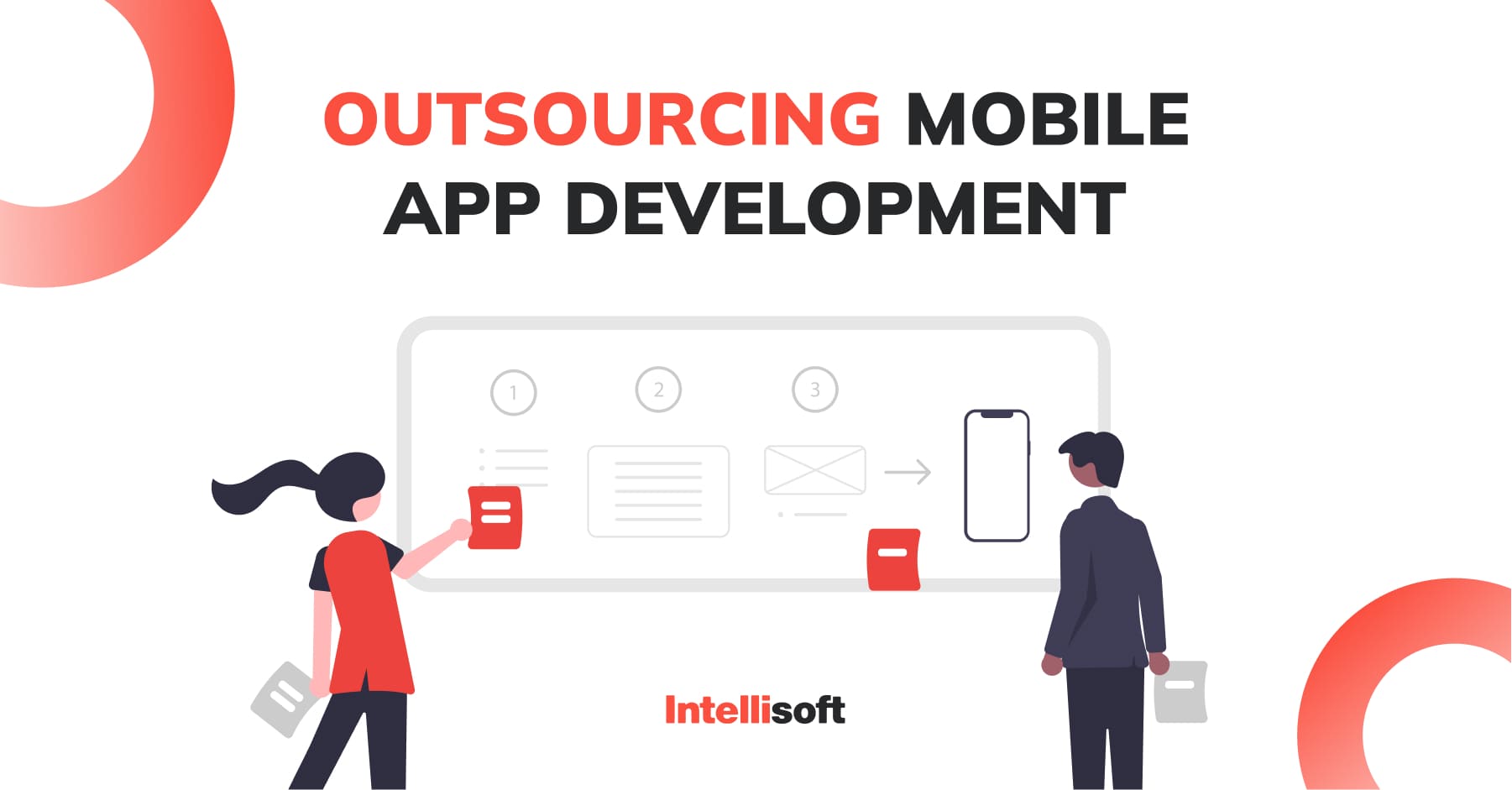
Cooperation with an app development agency helps achieve business goals quickly and without problems. You gain access to a talent base and fill up your team’s skill gaps. At the same time, you do not need to select specialists on your own, provide them with all the working tools, and manage costs. Outsourced experts know how to create a piece of software and when to upgrade app.
Do you want to appreciate the benefits of this work model? Entrust your development tasks to Intellisoft experts. We offer three options for cooperation: Outstaffing as additional human resources; Staff Augmentation as access to talent, advanced technology, and established processes; and Dedicated Team as a mutually beneficial technology partnership. Feel free to contact us and ask your questions!

